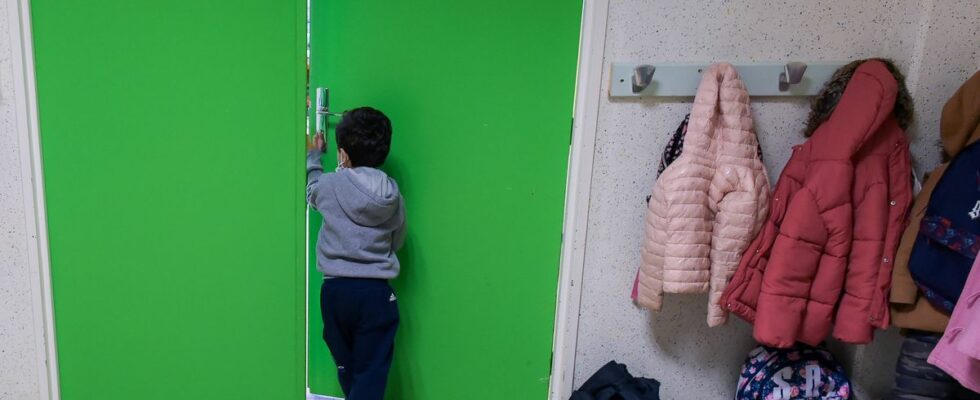Privacy, “it’s my world to me”, “it’s things that nobody has to know”, “it’s not to dig into my business”. In a report published this Thursday, the Defender of Rights, Claire Hédon, deplores that this right to privacy, yet guaranteed by the International Convention on the Rights of the Child, is very often flouted. Whether at school, on social networks or even within the family unit, it is difficult for children and adolescents to have the privacy they crave. Maintenance.
We tend to think that respecting a child’s privacy is limited to their body, whereas it is a much broader concept. How would you define this right to privacy?
It’s surprising because this question often comes up among adults, whereas for the 1,100 or so children we interviewed, it was obvious. It is the right to dispose of one’s body, of course, but also to have a space of one’s own, to be able to be alone. What alerted us is that this theme underlies many referrals and cuts across all aspects of their lives: sexual violence, harassment at school or online, housing issues in which intimacy is not possible…
You mention, for example, the case of parents who expose their children on social networks…
Of course, you don’t share a photo of someone without their permission. It’s obvious with an adult, why would it be different with a child? The basis is to ask him if he agrees. You cannot imagine the number of children and teenagers who told, during our round tables, of feeling embarrassed, even ashamed, knowing that these photos were on display. This can generate ridicule. This report is above all a tool for reflection intended for parents, but also for children.
But monitoring the privacy of your children also helps protect them, especially on the Internet. How to find a balance?
Children’s right to privacy is fundamental, but not absolute. It must indeed be proportional to the need for protection. There is no ready-made recipe, and the balance varies according to age. For example, on geolocation. It is often installed with a view to protecting children or adolescents, to check that they have arrived at school. But until what age should we maintain it? A teenager has the right not to be perpetually watched, to have a private life. It’s the same for parental controls on laptops. Everything is a question of balance but in any case, when you restrict this freedom, you have to explain why you control, when, not to do this behind your back.
At what age does the right to privacy begin? It is difficult to conceive this notion for babies or young children…
And yet! It starts at birth even if obviously, it evolves according to age. When we change a baby, for example, the gestures we will have and the way we will do it show that we respect his privacy. In some crèches, the changing rooms are in a passage or an open space, visible to all, this is a problem.
In your report, you also refer at length to the case of schools, where violations are frequent…
What we have seen is that privacy breaches affect everyone, not just the most vulnerable. You can’t imagine the number of children who don’t go to the toilet at school because the doors don’t close. Beyond the fact that it is very bad for their health, it is an attack on their dignity, on their well-being.
The question of clothes, too, comes up often. Some house rules prohibit such a haircut or such an outfit, a skirt that is too short or too long, a top deemed too sexy… This is a control that does not have to be. The European Court of Human Rights considers that the choices related to our appearance are part of the expression of our personality, and therefore of private life. It must be kept in mind that the child has as many rights as the adult, even if obviously it is necessary to protect him.
Why is it so important to respect children’s privacy?
Because it has a real impact on their development. Privacy allows you to build yourself: if you have been exposed all your life, you will tend to expose yourself more. Even if, I repeat, there is no miracle recipe – but as with all areas of education – it is important to ask questions, to be aware of these notions in order to find the balance between privacy and security.

